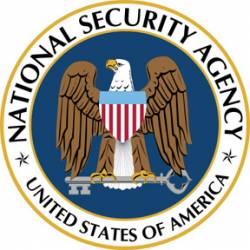With the Republican Party now entirely in charge of Washington’s prime policy real estate the neighborhood is going to change. The current residents are warily watching the newcomers take measurements for a major remodel of agencies, lobbying rules, national priorities, and international relationships, and everyone is assessing the implications of the new landscape.
With the Republican Party now entirely in charge of Washington’s prime policy real estate the neighborhood is going to change. The current residents are warily watching the newcomers take measurements for a major remodel of agencies, lobbying rules, national priorities, and international relationships, and everyone is assessing the implications of the new landscape.
Although the look of the town’s ultimate layout is far from final, President-elect Donald Trump has sketched out enough of his plans to make some guesses on the shifts that could affect the GPS program — and GNSS in general — in the coming months.
In an October policy speech in Gettysburg, Pennsylvania, then-candidate Trump laid out 20+ action items for his first 100 days. Not surprisingly, changing the nation’s approach to position, navigation and timing (PNT) programs was not on the list — nor is it likely to be.
Although budget issues, spectrum conflicts, and signal jamming present escalating challenges — and a review of GPS policy has been on Obama’s long-range to-do list — the GPS program is noncontroversial, generally working well, and likely to remain the world’s PNT “gold standard” for some time.
“GPS policy updating would not be one of my priorities,” said a policy expert familiar with the program. The National Executive Committee for Space-Based Positioning, Navigation, and Timing “is largely working the way that people intended it to work,” the expert said, pointing out that the most pressing issues — consistent funding shortages impacting the Department of Transportation’s GPS obligations and disagreements with the Federal Communications Commission over spectrum and the official use of other PNT constellations — are fundamentally separation-of-powers issues.
“Those are problems with the Congress and oversight; those aren’t really subject to presidential policy,” the expert told Inside GNSS.
The new administration also appears unlikely to make immediate changes to the GPS program as part of early efforts to change the way Washington does business.
“This new administration, from what we can tell, from a space policy standpoint, they seem committed to leveraging domestic, commercial, private industry space capabilities, as much as feasible — which we, in our business, are encouraged to hear,” said Mike Tierney, vice president at Jacques & Associates, a consulting firm that specializes in defense, space/intelligence, homeland security and related industries.
However, if the Trump administration looks at the military space portfolio with that commitment in mind, said Tierney, GPS would likely not be their first target for change as other military systems seem amenable to a more commercial approach that could have greater impact.
“If you’re the Trump administration and you’re looking to change the way the military does space, GPS is probably not your first candidate to look at,” Tierney said.
That doesn’t mean that PNT-related changes won’t occur under the Trump administration — perhaps, even, for the better.
Military Boost?
On that 100-day to-do list was a pledge to pump up funding for the military, including ending budget sequestration for the Department of Defense (DoD). Congressional Republicans also have been itching to boost defense spending, which could put some real momentum behind the idea.
Up to now GOP lawmakers have been wrestling with the Obama White House, which has wanted to balance any defense funding increase with more spending for non-defense programs. The situation could change, however, if a funding plan now working its way around Capitol Hill gets the go-ahead.
As of press time, the government was operating under a continuing resolution set to expire on December 9. Without a deal before midnight that day the government will shut down. Again.
Lawmakers are reportedly planning to pass another continuing resolution that would fund the government past Inauguration Day 2017 — perhaps through March. This would give the incoming Trump administration an opportunity to put its policy stamp on the 2017 spending bill and lawmakers a way to avoid further hassling with the Obama team. Higher military spending would not necessarily benefit GPS directly but it could ease some of the pressure to find new cuts.
Of course, it’s not a done deal. Obama would have to sign the new continuing resolution into law and will likely be negotiating for measures he wants included — as will lawmakers looking to shape what could be one of the last must-pass bills of this session of Congress.
PNT for Jobs?
Trump also said shortly after winning the election that, upon taking office, he intended to focus on three things: immigration, healthcare, and jobs. To generate some of those jobs quickly he proposed a $1 trillion program to update bridges, roads, and other U.S. infrastructure coast to coast. Efforts to build a backup for GPS could win support as part of Trump’s goals for job creation.
There is no question that GPS underpins the American economy. The Department of Homeland Security (DHS) has long acknowledged that the GPS service is a crosscutting capability on which 14 of the nation’s 16 critical infrastructures are critically dependent.
Despite this, the Obama administration killed a low-cost, consensus plan to create a partial backup by upgrading the Coast Guard’s existing Loran stations to enhanced Loran (eLoran) — a ground-based system that could, if something happened to GPS, provide the timing data essential to running the power grid, Internet, financial transactions, and the communications network. eLoran offers the added benefit of being nearly unjammable and available in places where GPS is not — such as under ground and under water.
“GPS signals are America’s least visible and most vulnerable infrastructure,” said Dana Goward, the president of the Resilient Navigation & Timing Foundation and a former Coast Guard executive. “Building an eLoran complement and backup for GPS will make America stronger, create jobs, and eliminate a strategic advantage that countries like China, Russia, and Iran can hold over our heads. An eLoran network should be part of any U.S. infrastructure program.”
Although the federal government long ago concluded there was indeed a need for eLoran and put the plan back on the table, it has spent more than a decade haggling over which agency would take responsibility and pay for it — dawdling to the point where it will now be far more expensive to convert the old stations.
The issue is currently being studied again, this time to set requirements for a full GPS backup, with the possibility of getting eLoran operational as an interim solution.
The new administration’s plans to update the nation’s infrastructure and boost national security could invigorate the low-energy approach taken so far towards eLoran. Not everyone in Congress is warm to the huge amount of spending Trump has proposed for infrastructure, but the Democrats seem inclined to support the plan. Moreover, there is already support among Trump-connected lawmakers for eLoran — and that might make the difference.
Connected
In a good position to bring eLoran to the forefront for consideration is Rep. Duncan Hunter, R-California, an early and vocal supporter of Trump’s candidacy who led an outreach effort to Congress for the candidate during the campaign.
Hunter served in the Marines and is a combat veteran of Iraq and Afghanistan. His name has been floated as a possible Secretary of Defense or Secretary of the Army under Trump.
Hunter is on the House Armed Services Committee and serves on the Subcommittee on Intelligence, Emerging Threats and Capabilities and the Subcommittee on Seapower and Projection Forces. It is, however, in his role as the chairman of the Subcommittee on Coast Guard and Maritime Transportation that he has been especially vocal about the need for a GPS backup.
During a 2014 hearing he blasted DHS, which is now the parent agency of the Coast Guard, for doing study after study on backing up GPS but failing to make a decision as required under a 2004 presidential directive.
“They did a study and now they are going to do more studies and that’s the circle loop, the endless loop of stupidity we have in Congress instead of just getting something done,” Hunter said.
Hunter also signed a letter with Rep. Garamendi, D-California, pressuring the three government agencies responsible for leading PNT policy and publishing the Federal Radionavigation Plan — the departments of defense, transportation, and homeland security — to get moving on a backup system.
“America’s Global Positioning System (GPS) is an essential element of nearly every infrastructure upon which our economy and security depend,” they wrote. “While GPS is superbly maintained and operated, its signals are necessarily faint and can be easily disrupted. This has become a well-recognized and unacceptable risk for our nation.”
In addition Hunter backed at least two bills this congressional session aimed at sorting out the agency responsibilities for a backup. He co-sponsored Garamendi’s bill, the National Positioning, Navigation, and Timing Resilience and Security Act of 2015 (HR 1678) along with Peter DeFazio, D-Oregon, Frank LoBiondo, R-New Jersey, and Bill Shuster, R-Pennsylvania.
HR 1678 would have fixed the funding issue by mandating that DoD “provide for the establishment, sustainment, and operation of a reliable land-based positioning, navigation, and timing system.” DoD would have to work with the Coast Guard, the secretary of transportation, and the private sector to move things along.
The fact that Shuster became involved with HR 1678 is also a boost for eLoran supporters. Shuster endorsed Trump in April and his name has come up as a possible nominee to head the Department of Transportation — though he told Politico that he is not interested in the job.
Garamendi’s bill did not make it out of the House, but a bill sponsored by Hunter did. The Coast Guard and Maritime Transportation Amendments Act of 2016 (H.R. 5978) would mandate that the Coast Guard “provide for the establishment, sustainment, and operation of a reliable land-based enhanced LORAN, or eLORAN.”
Garamendi co-sponsored Hunter’s legislation as did (in alphabetical order) Representatives Henry Cuellar, D-Texas; Blake Farenthold, R-Texas; David Rouzer, R-North Carolina; Don Young, R-Alaska; and Lee Zeldin, R-New York. Farenthold, Rouzer, and Zeldin all endorsed Trump; all three won re-election this fall.
Space-Based Influence
Rep. Jim Bridenstine, R-Oklahoma, could also be a voice for GPS.
A former Navy pilot, Bridenstine has been mentioned as a possible choice for secretary of the Air Force or NASA administrator. A strong supporter of Trump, he sharply criticized Speaker Paul Ryan for his lackluster backing of the GOP candidate during the campaign.
Bridenstine serves on the House Armed Services Committee including two subcommittees, the first being Sea Power and Projection Forces and the second Strategic Forces. He is also on the House Science, Space, and Technology Subcommittee for which he chairs the Environment Subcommittee and serves on the Oversight Subcommittee.
More to the point, Bridenstine has taken an interest in all things space-related, including GPS and the new PNT constellations coming online. He proposed the American Space Renaissance Act (HR 4945), which includes a forward-looking mandate for GNSS.
Under Section 103 of the bill, DoD would be required to report on its strategy to “best leverage” signals from other systems including Galileo and commercial PNT systems “that use commercial satellite constellations.”
That strategy is to include at least these three elements:
- issues associated with monitoring and verification of the accuracy, integrity, availability, and security of foreign and commercial positioning, aviation, and timing signals
- mechanisms for timely notification to military users of the current and projected reliability of such foreign and commercial systems
- methods for sharing information across the Global Positioning System, the Galileo system, and other positioning, navigation, and timing systems to improve the interoperability and effectiveness of the systems for military users.
The mention of commercial systems in the context of PNT services brings to mind eLoran, which has been discussed as a public private partnership, and a PNT service now being offered by Iridium and Satelles. At least one other private sector PNT service with a space component is under discussion.
The commercial element Bridenstine included in his legislation is particularly interesting in light of the incoming administration’s emphasis on supporting domestic, commercial space capability.
Although his bill has not progressed, Bridenstine has said, according to Space News, that he sees it more as providing a collection of ideas that can be incorporated into other legislation. “This bill will serve as a repository for the best space reform ideas,” he said in a speech at the 31st Space Symposium in Colorado Springs, Colorado, in April. “Many of its policies can be inserted into other bills that will pass.”
The bill is co-sponsored by Rep. Doug Lamborn, R-Colorado, who maintained his support for Trump after the emergence of a damaging recording of Trump making remarks about groping women. Colorado was a battleground state, this election and it’s likely to get some extra GOP attention going forward.
Just how important is these lawmakers’ early support of Trump’s candidacy? Pretty important it appears. Trump, so far, has chosen his advisors and cabinet officials from among his loyal supporters.
The lawmakers mentioned don’t necessarily have to get the administration jobs they are being considered for in order to have influence on the new administration. They made their bones during the heat of one of the country’s most intense elections. Wherever they wind up, it’s a decent bet they will be able to at least get a call back from the Trump team when it comes to PNT policy.






